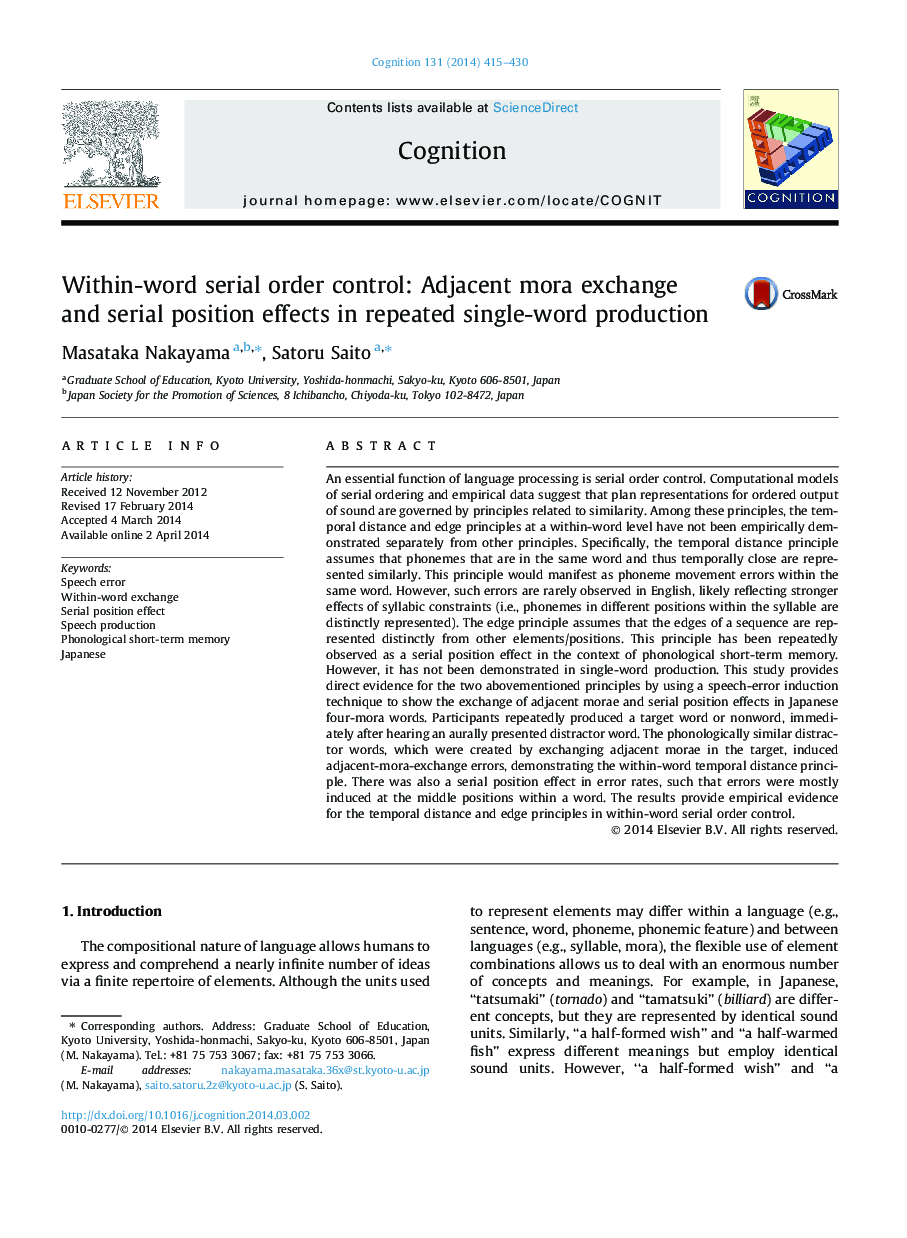| کد مقاله | کد نشریه | سال انتشار | مقاله انگلیسی | نسخه تمام متن |
|---|---|---|---|---|
| 926702 | 921895 | 2014 | 16 صفحه PDF | دانلود رایگان |
• A speech-error induction technique revealed principles of serial order control.
• The technique successfully induced within-word adjacent mora exchanges in Japanese.
• The exchange errors indicate the temporal distance principle within a word.
• Induced speech errors exhibited serial position effects.
• The serial position effects indicate the edge principle within a word.
An essential function of language processing is serial order control. Computational models of serial ordering and empirical data suggest that plan representations for ordered output of sound are governed by principles related to similarity. Among these principles, the temporal distance and edge principles at a within-word level have not been empirically demonstrated separately from other principles. Specifically, the temporal distance principle assumes that phonemes that are in the same word and thus temporally close are represented similarly. This principle would manifest as phoneme movement errors within the same word. However, such errors are rarely observed in English, likely reflecting stronger effects of syllabic constraints (i.e., phonemes in different positions within the syllable are distinctly represented). The edge principle assumes that the edges of a sequence are represented distinctly from other elements/positions. This principle has been repeatedly observed as a serial position effect in the context of phonological short-term memory. However, it has not been demonstrated in single-word production. This study provides direct evidence for the two abovementioned principles by using a speech-error induction technique to show the exchange of adjacent morae and serial position effects in Japanese four-mora words. Participants repeatedly produced a target word or nonword, immediately after hearing an aurally presented distractor word. The phonologically similar distractor words, which were created by exchanging adjacent morae in the target, induced adjacent-mora-exchange errors, demonstrating the within-word temporal distance principle. There was also a serial position effect in error rates, such that errors were mostly induced at the middle positions within a word. The results provide empirical evidence for the temporal distance and edge principles in within-word serial order control.
Journal: Cognition - Volume 131, Issue 3, June 2014, Pages 415–430
